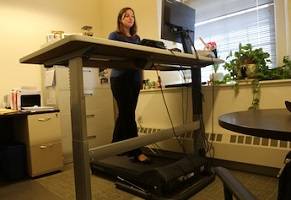March 11, 2013
Time to mothball facilities management’s stuffed shirts
 Much hand-wringing and angst in the world of Facilities/Workplace Management at the moment. The usual existential paranoia about relevancy and the need for a seat at the top table; the search for differentiation when pretty much the whole industry does the same things in the same way; hoping to standardise as much as possible under the guise of best practice and looking for ways that add value that won’t put a further pinch on already tight margins. As ever, new legislative and regulatory frameworks will keep the talking heads occupied and BIM (and other new tools) will continue to keep the cash tills ringing at software companies.
Much hand-wringing and angst in the world of Facilities/Workplace Management at the moment. The usual existential paranoia about relevancy and the need for a seat at the top table; the search for differentiation when pretty much the whole industry does the same things in the same way; hoping to standardise as much as possible under the guise of best practice and looking for ways that add value that won’t put a further pinch on already tight margins. As ever, new legislative and regulatory frameworks will keep the talking heads occupied and BIM (and other new tools) will continue to keep the cash tills ringing at software companies.
























March 11, 2013
Flexible working: Falling out of fashion
by Pam Loch • Comment, Legal news, Workplace
Just as ACAS concludes its consultation on flexible working, the practice has been declared démodé by none other than Alexandra Shulman, the editor of British Vogue. Writing in response to the recent news that Yahoo’s Marissa Mayer ordered the company’s 11,500 staff back to the office, the Vogue editor has argued that working from home is not an adequate alternative to showing your face in the workplace. Ms Mayer goes on to note that in a creative environment, important opportunities are missed when absent colleagues are tottering, undressed around their kitchens. The best stories, she says, arise from chance remarks, gossip and jokes between colleagues working alongside each other. More →